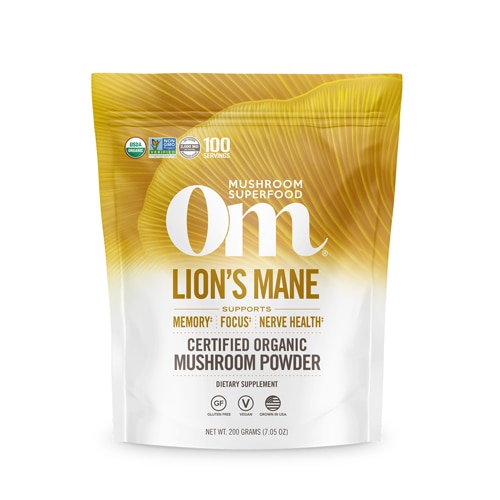[vc_row][vc_column][vc_column_text]As the old adage goes, everything in moderation, including
positivity. When out of balance with context, positivity can become toxic. Toxic positivity, a term popping up with increasing frequency these days, is the relentless and ineffective overgeneralization of a happy, optimistic state across all situations.

What is toxic positivity?
To glean insight into how our devotion to positivity culture can stunt our growth, I turned to Whitney Goodman’s recent book “Toxic Positivity.” Although well-intentioned, she says, toxic positivity can result in the denial, minimization and dismissal of the authentic human emotional experience. Instead of meting out constant affirmation, such as “positive vibes only,” consider giving space to all the emotions—grief, sadness, joy, frustration, loss, delight. We are not always going to feel happy. Rather than being subtly shamed for unhappiness, it’s far better to make our peace with “it’s ok to not feel ok.”
I thought it was good to always be positive?
Taken to an extreme, positivity can mask denial. There’s nothing wrong with positivity—some of the time. But as the go-to answer for any situation, dilemma, event, it’s limiting. As Shakespeare wrote in Hamlet, “For goodness, growing to a pleurisy, Dies in his own too-much.” As Goodman explains in her book, healthy positivity means making room for reality, authenticity, struggle and transformation.
For example, time doesn’t always heal all wounds. Sometimes we don’t get over things, or it takes a while, and everybody has their own timeline for
grieving. Telling someone that time will heal puts relief in the future tense, minimizing the present moment experience of distress.
And constant positivity conveys that some emotions are worthwhile and other are bad, which leads to suppression. What we resist, persists. Positivity can also translate as a blind spot. It says things like “let’s just love each other” in response to systemic prejudice, as if donning rose colored glasses can erase color distinctions.
Responding to someone’s suffering is nuanced. The three factors to consider are timing, content and projection. Timing is moving in to quickly for the fix, content is learning to navigate difficult topics, and projection is not projecting your own values on someone else. Case in point: Who wants to hear that Jesus loves them, if they don’t believe in Jesus?
How does an insistence on positivity lead to shame?
If we are made to feel that negative feelings are bad, we might end up suppressing them. What is suppressed, shut down, denied, becomes grist for the shame mill. One
study found that avoidance coping led to more depressive symptoms, not less. Goodman explains that faking positivity until you make it—entailing a shutting down of whatever emotions are more prevalent—creates a shame spiral.
How can we validate negative feelings but also learn to put them in a bigger context?
If we can learn to get more comfortable with challenging emotions, we will be able to lead a more fulfilling life, says Goodman. If we practice a form of toxic positivity with others—or with yourself—it’s a way of saying that what we feel isn’t real. When we understand that all emotions are valid reactions, and have an intelligence embedded inside of them, it makes it easier to feel truly optimistic. We know that you can handle whatever is thrown at us, even if it's crappy. Although it can be unconscious, toxic positivity can convey the sentiment that everything bad in someone’s life is their fault.
Tips for modulating positivity
Instead of saying “it could be worse”
Get curious about what the person is experiencing. If you are feeling resourced enough, you can ask the person to say more about what they are feeling. Instead of denying their reality, try asking if there is anything you can do to help?
Instead of saying “everything happens for a reason”
Sometimes things just suck. They are hard, inexplicable, and feel unfair. Sometimes the reason is not easy to parse. A statement like “everything happens for a reason” squelches emotional expression, connection and uncertainty. Instead of telling someone why things happen, try validating the challenging situation they are in. Then you can say it’s hard to see what good will come of this, but we will make sense of it when we can.
Instead of “don’t cry”
This conveys the message that my discomfort with your emotions is more important than your need to express your pain. Instead of trying to control the situation, you could say “you can cry if you want to, I’m here for you.
Instead of “negativity attracts negativity”
Everyone complains and feels negative from time to time. Having a hard day doesn’t mean you have bad vibes. Instead, you can say it makes sense you feel that way you do, given the situation. Again, ask open-ended questions so that you can deepen your understanding of the other person’s experience. Instead of the admonishment of “get over it,” you can ask what is the hardest part of the situation for them?[/vc_column_text][/vc_column][/vc_row][vc_row][vc_column][vc_text_separator title="Featured Products" border_width="2"][vc_row_inner equal_height="yes" content_placement="middle" gap="35"][vc_column_inner width="1/3"][vc_single_image image="159552" img_size="full" alignment="center" onclick="custom_link" img_link_target="_blank" css=".vc_custom_1651415503848{padding-right: 7% !important;padding-left: 7% !important;}" link="https://www.vitacost.com/friska-mood-boost"][/vc_column_inner][vc_column_inner width="1/3"][vc_single_image image="159554" img_size="full" alignment="center" onclick="custom_link" img_link_target="_blank" css=".vc_custom_1651415522522{padding-right: 7% !important;padding-left: 7% !important;}" link="https://www.vitacost.com/vitacost-st-johns-wort-extract-300-mg-60-capsules"][/vc_column_inner][vc_column_inner width="1/3"][vc_single_image image="159553" img_size="full" alignment="center" onclick="custom_link" img_link_target="_blank" css=".vc_custom_1651415539764{padding-right: 7% !important;padding-left: 7% !important;}" link="https://www.vitacost.com/vitacost-st-johns-wort-extract-300-mg-60-capsules"][/vc_column_inner][/vc_row_inner][/vc_column][/vc_row]




